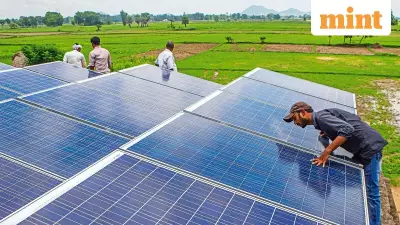
In a significant economic development following the historic revocation of Article 370, Jammu and Kashmir has witnessed a remarkable surge in property investments from outside the region. Official data reveals that 631 non-residents have acquired land worth approximately ₹129 crore, marking a transformative shift in the union territory's real estate landscape.
Post-370 Property Boom: The Numbers Speak
The statistics paint a compelling picture of changing investment patterns. According to recent government disclosures, these transactions represent the first major wave of external investment in J&K's property market since the constitutional changes in August 2019.
The investment breakdown shows:
- Total transactions: 631 by non-residents
- Combined investment value: ₹129 crore
- Period: Since August 2019
- Significance: First major external land acquisitions post-370 revocation
Economic Implications and Market Response
This influx of investment signals growing confidence in Jammu and Kashmir's economic potential following the constitutional reorganization. The property purchases span various categories of land, including agricultural, residential, and commercial plots, indicating diverse investment interests across sectors.
Real estate experts suggest this trend could accelerate infrastructure development and economic growth in the region. The ability for non-residents to purchase land has opened new avenues for investment that were previously restricted, potentially transforming J&K's economic trajectory.
Government Perspective and Future Outlook
Officials view these developments as validation of the policy changes implemented after the Article 370 revocation. The investments are expected to generate employment opportunities, boost local economies, and integrate J&K more closely with national economic patterns.
The data emerges amid ongoing discussions about the economic revitalization of Jammu and Kashmir. As more investors explore opportunities in the region, market observers anticipate further growth in property transactions and development projects across various sectors.
This trend represents not just financial transactions but a fundamental shift in how Jammu and Kashmir is perceived as an investment destination, potentially setting the stage for broader economic transformation in the coming years.





